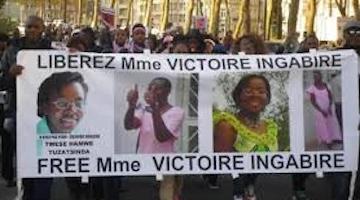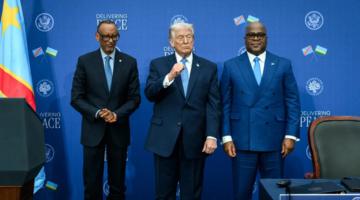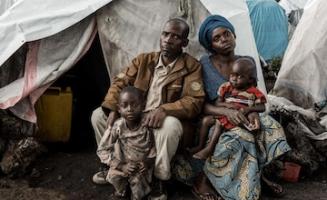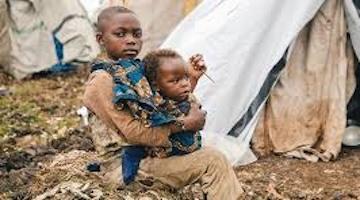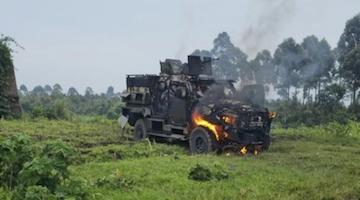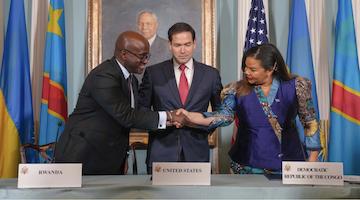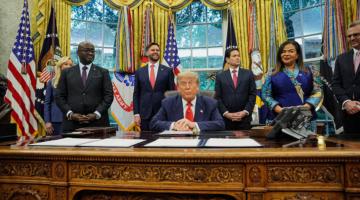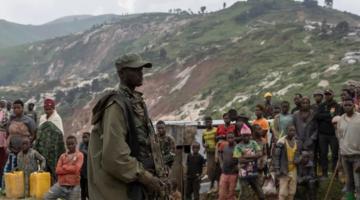Dee Knight’s comments on a review by Ann Garrison in Black Agenda Report, of Cobalt Red: How the Blood of the Congo Powers Our Lives.
Based on her reading of Cobalt Red, Garrison writes that “Huge Chinese corporations so dominate Congolese cobalt mining, processing and battery manufacture that one has to ask why a communist government, however capitalist in fact, doesn’t at least somehow require more responsible sourcing of minerals processed and then advanced along the supply chain within its borders.” [emphasis added]
Garrison has a strong record of incisive anti-imperialist reporting on Africa, so it is necessary to consider her question seriously. Unfortunately, the result of such consideration suggests Garrison rushed to judgment about China’s role in the Congo, and failed to look beyond Cobalt Red for facts and analysis of the DRC’s rapidly changing mining industry.
Others have researched the issue more fully and accurately. One is Isabelle Minnon, a lawyer and activist in Belgium. Her research report, “Industrial Turn-Around in Congo?” appeared last October in Lava, a Belgian magazine of social criticism and Marxist analysis.
Minnon shows that China has been part of the solution, not of the problem. “China has responded to the DRC’s need to have partners who invest in industrialization,” she writes. Western colonists had bled Congo dry through onerous debt, leaving it “weighed down by a burden that prevented it from developing economically. In 2001 industrial production was at a standstill, mining sites deserted.”
When the DRC turned to the World Bank and IMF for help, they insisted on privatizing the mining sector, laying off thousands of mine workers. Hundreds of mines were sold with “dormant mining titles” to foreign companies – “not to produce but to resell them at the right time” for big profits.
The measures didn’t wipe out the mining industry, but they pushed thousands of laid-off mine workers and their families to fend for themselves as artisanal miners, and then sell the minerals to processing companies. That was the situation described in Cobalt Red.
China’s role has been to bring new, large-scale investment on a new basis: combined financing for industrial mining and public infrastructure – roads, railroads, dams, health and education facilities. The result was “After decades of almost non-existent industrial production, the country became and remains the world’s leading producer of cobalt and, by 2023, became the world’s third largest producer of copper.” The new deal “puts an end to the monopoly of certain Western countries and their large companies whose history shows that this exclusivity has not brought development to the country.”
The arrangement has dramatically reduced the role of artisanal mining. “Since the enormous increase in production in the mining sector in Congo, 80% of mining production is done industrially. Sicomines [China-Congolese Mining Co.] has built the most modern factory in the DRC for processing raw copper.” The same is true for cobalt, replacing artisanal mining with organized, industrial production. Industrial mining is a reversal of artisanal mining.
“Resource-for-Infrastructure (RFI) deals like this all over Africa have helped China foster strong relations with several countries,” writes Halim Nazar of India’s Institute for Chinese Studies.
Western competitors are not happy. “The IMF publicly criticized the DRC for taking on too much debt,” Nazar writes. But it has been a “debt-investment” based on real growth.
A Peace-for-Concessions Swap?
Avril Haines, US Director of National Intelligence, visited Kinshasha airport last November 20, to meet with DRC President Tshisekedi, together with Molly Phee, Undersecretary of State for Africa, the State Department’s most senior official for Africa. It was the first day of Tshisekedi’s presidential campaign, reports Tony Busselen, author of Congo for Beginners. The top US officials focused on peace between the DRC and neighboring Rwanda, offering help in difficult upcoming elections. Tshisekedi won the heavily contested elections in a landslide.
A December 1 report in Politico suggests it may have been a peace for concessions swap. “The meeting with Haines comes at a time when Washington is trying to counter China in Africa. Congo is home to about 70 percent of the world’s cobalt reserves and China is the largest producer. Beijing is Kinshasa's largest trading partner and has acquired important mining rights since the 2000s. Control of the market gives the country a big lead over the US in the race for crucial parts for electric vehicle batteries.”
Did Haines press for Tshisekedi to review Congo’s contracts with China? Politico quotes Cameron Hudson, a former CIA intelligence analyst for Africa: “If anything, this administration has already shown that it is willing to review contracts with China.” Last February 16, Tshisekedi’s administration published a highly critical report on the China contract. The President ordered an audit of the contract, and called on China to revise it on a “win-win” basis.
When President Tshisekedi was invited to China last May, he gave an interview on Chinese TV in which he distanced himself from the policy of condemnation and interference against China. China had cancelled the DRC’s interest-free loans worth an estimated $28 million, promised to fund more infrastructure projects and also give $17 million in other financial support as the DRC joins the Belt and Road Initiative (BRI).
Isabelle Minnon cites Franz Fanon’s observation that “Africa has the shape of a revolver whose trigger is in the Congo.” She adds that “those whose finger is on this trigger have the power to build or destroy the DRC and all of Africa.” She says this is how, following the 1961 US-and-Belgium-backed coup d’état and assassination of Patrice Lumumba, the colonialists were able to install Mobutu Sese Seko, who governed for 31 years, and cooperated with them in destroying the Congolese economy by miring it in debt. After the DRC and China agreed on a resource-for-infrastructure deal, the situation has improved – so much that the deal “fueled the fury of Western countries to the point that” the World Bank and IMF tried to force a 50 percent reduction in the infrastructure budget.
The Wilson Center published a report in September 2021, that “Artisanal miners produce 20% of the country’s cobalt output. The remainder comes from foreign-owned firms, primarily Chinese, whose rechargeable battery industry accounts for around 60 percent of global cobalt demand.” [emphasis added] Note that industrialized mining is many times more productive than artisanal mining, so even producing 20% of output, there are more artisanal miners than industrial mine workers.
Who likes Cobalt Red, and who doesn’t
Ann Garrison acknowledges criticism of Cobalt Red – she says Open Democracy “called it a sensationalistic, self-aggrandizing ‘White Saviour’ exposé.” OD said Cobalt Red “simply rehashes old stereotypes and colonial perceptions of the DRC, with indulgent use of dehumanizing rhetoric, lack of research ethics, and ignorance and/or erasure of local knowledge.” Perhaps most telling, the OD critics say Cobalt Red’s author “is intent on portraying the DRC as an unchanging, suffering world out of time.” But times are changing, and much of this change can be traced to the innovation of the resource-for-infrastructure deal with China.
Garrison notes that “Kara (the author of Cobalt Red), “has been interviewed on countless podcasts, on Democracy Now, and at the Foreign Policy Association. This last – along with bestseller ranking in the NY Times and Publishers Weekly and shortlisting for the Financial Times Best Business Book of the Year – suggest approval from questionable sources. There is questionable honor sharing glory with such “heroes” of the Foreign Policy Association as Antony Blinken and Madeleine Albright, General David Petraeus, journalists Robin Wright and David Sanger, and foreign policy titans like William Burns and Fiona Hill.
It may be that Ann Garrison didn’t notice that China’s role in the Democratic Republic of Congo was a significant change. In one sense that’s understandable. Change has not manifested itself completely, and the process may well be far from perfect. But in her article she rushed to judgment too quickly, without making appropriate comparisons.
Dee Knight is the author of A Realistic Path to Peace, 2024 Edition: From Genocide to Global War… and How We Can Stop It

